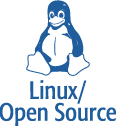
|
 TECHNICAL SESSIONS TECHNICAL SESSIONS
Complete Technical Sessions
By Day: Monday | Tuesday | Wednesday |
Thursday | Friday
By Session: General Sessions | FREENIX | SIGs | Guru Is In | WiPs
Locations: See the complete technical sessions.
|
Wednesday, June 30
|
|
9:00 a.m.–10:00 a.m.
|
Wednesday
|
Plenary Session
Thinking Sensibly About Security in an Uncertain World
Bruce Schneier, Counterpane Internet Security, Inc.
Listen in MP3 format
|
 |
All security decisions involve trade-offs: how much security you get, and
what you give up to get it. When we decide whether to walk down a dimly
lit street, purchase a home burglar alarm system, or implement an airline
passenger profiling system, we're making a security trade-off. Everyone
makes these trade-offs all the time. It's intuitive and natural, and
fundamental to being alive. But paradoxically, people are astonishingly
bad at making rational decisions about these trade-offs.
Security expert Bruce Schneier discusses this notion of security trade-offs
and how we are all "security consumers." He makes use of a five-step
process to explicate these intuitive trade-offs and shows how the process
can be applied to decisions both small and large. Learn how security works
in the real world, and what you can do to get the security you want . . .
not the security that is forced upon you.
Internationally renowned security expert Bruce Schneier has written eight
books, including Beyond Fear and Secrets and Lies, as well as the Blowfish
and Twofish encryption algorithms. Schneier has appeared on numerous
television and radio programs, has testified before Congress, and is a
frequent writer and lecturer on issues surrounding security and privacy.
|
|
|
10:00 a.m.–10:30 a.m. Break |
|
 |
|
10:30 a.m.–12:00 p.m. |
Wednesday
|
GENERAL SESSION PAPERS
Unplugged
Session Chair: Scott F. Kaplan, Amherst
|
 |
Awarded Best Paper!
Energy Efficient Prefetching and Caching
Athanasios E. Papathanasiou and Michael L. Scott,
University of Rochester
Time-based Fairness Improves Performance in Multi-Rate WLANs
Godfrey Tan and John Guttag, MIT
EmStar: A Software Environment for Developing and Deploying Wireless Sensor Networks
Lewis Girod, Jeremy Elson, Alberto Cerpa, Thanos Stathopoulos, Nithya Ramanathan, and Deborah Estrin, University of California, Los Angeles |
SIG SESSIONS
|
Security SIG
|
 |
 |
Panel: The Politicization of Security
Moderator: Avi Rubin, Johns Hopkins University
Panelists: Ed Felten, Princeton University; Jeff Grove, ACM; Gary McGraw, Cigital
Like it or not, security has become political. Technologists once
interested only in how security apparatus works and how it fails need to
be cognizant of the ramifications of their activities. These days,
announcing a security flaw can lead to personal and professional attack
by corporate spin control. Pointing out that the emperor has no clothes
can wind you up in jail. Demanding secure voting induces smear
campaigns—even in a democracy.
This panel is about what happens when security and politics collide.
Using particular real world examples, we will discuss the politicization
of security. Examples we will discuss include:
- The RIAA and the DMCA
- Electronic voting apparatus
- Compiler flaws and Microsoft security response
We will debate the finer points of:
- Disclosure of security problems
- Civil liberty and security
- Fighting stupid security
Come join us! |
GURU SESSIONS
High-Performance Linux Clusters
Greg Bruno, San Diego Supercomputer Center
|
 |
 |
Greg is a core developer for Rocks, a high-performance Linux cluster
distribution developed at SDSC. "As we give this talk, we
will build a new cluster on the fly and in front of the crowd." Participants in Greg's Guru session will walk away with an
appreciation of how easy it can be to build and deploy high-performance
parallel machines.
|
 |
|
12:00 p.m.–1:30 p.m. Lunch (on your own) |
|
 |
|
1:30 p.m.–3:00 p.m. |
Wednesday
|
|
FREENIX SESSIONS
|
Opening Remarks & Awards
Bart Massey, Portland State University, and Keith Packard, Hewlett-Packard Cambridge Research Lab
|
Invited Talk: The Technical Changes in Qt Version 4
Matthias Ettrich, Trolltech
|
 |
|
SIG SESSIONS
Panel: Wireless Devices and Consumer Privacy
Organizers: Ari Juels, RSA Laboratories; Richard Smith, Consultant
Panelists: Markus Jakobsson, RSA Laboratories; Frank Schroth, Ulocate; Matthew Gray, Newbury Networks
Location-based services, RFID, Bluetooth, and 802.11 promise a more seamless
interface between the physical and virtual worlds. Like many information
technologies, they have also ignited fears among privacy advocates, ranging
from the legitimate and pressing to the fantastical. The goal of this panel
is to adumbrate and compare the threats to individual privacy and civil
liberties posed by several popular wireless technologies. Is RFID a greater
threat to privacy than a GPS-enabled mobile phone? Is Bluetooth an emerging
threat? How much do 802.11 devices reveal about you when used in public
venues? More generally, the panelists will consider how technology itself can
effectively combat the very privacy problems it is creating. |
GURU SESSIONS
Deploying Samba
Gerald Carter, Samba Team
|
 |
 |
 |
 |
Gerald Carter has been a member of the Samba Team since 1998.
He is employed by Hewlett-Packard as a Software Engineer,
where he works on Samba-based print appliances and acts as
the release coordinator for the Samba project.
He is currently working on a guide to LDAP for system administrators
with O'Reilly Publishing and is the author of Teach Yourself
Samba in 24 Hours from Sams Publishing.
Gerald holds a master's degree in computer science from
Auburn University, where he was also previously
employed as a network and systems administrator.
|
 |
|
3:00 p.m.–3:30 p.m. Break |
|
 |
|
3:30 p.m.–5:00 p.m. |
Wednesday
|
FREENIX SESSIONS
Migrating an MVS Mainframe Application to a PC
Glenn S. Fowler, Andrew G. Hume, David G. Korn, Kiem-Phong Vo, AT&T Laboratories
C-JDBC: Flexible Database Clustering Middleware
Emmanuel Cecchet, INRIA; Julie Marguerite, ObjectWeb;
Willy Zwaenepoel, EPFL
Awarded Best Paper!
Wayback: A User-level Versioning File System for Linux
Brian Cornell, Peter A. Dinda, and Fabián E. Bustamante, Northwestern University
|
SIG SESSIONS
|
Security SIG
|
 |
 |
Debate: Is an Operating System Monoculture a Threat to Security?
Dan Geer, Chief Scientist, Verdasys, Inc.; Scott Charney, Chief Trustworthy Computing Strategist, Microsoft Corporation
Moderated by Avi Rubin, Johns Hopkins University
Listen in MP3 format
Dan Geer's Opening and Closing Remarks
|
GURU SESSIONS
How to Talk with a VC
Dan Slavin, Founder, Photolighting
|
 |
 |
 |
 |
 |
Dan is a serial entrepreneur who has built a number
of successful startup companies. Many technologists
think they have come up with the "next great new
thing," but have no idea about the venture funding process.
This discussion will focus on how to organize and
present your ideas and what VCs look for when they invest. |
|

|


